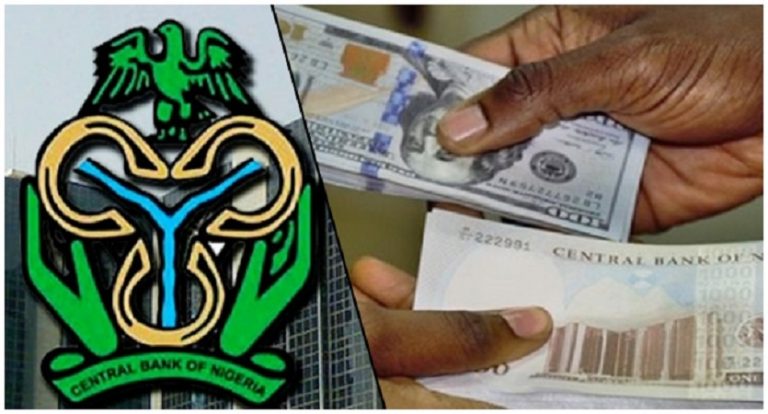
In a shocking revelation, the Central Bank of Nigeria (CBN) announced on Monday that it has uncovered invalid foreign overdue claims amounting to $2.4 billion, adding further pressure on the naira and sending shockwaves through the currency market.
Central bank governor Yemi Cardoso revealed this information during an interview with Arise TV, highlighting the dire consequences of these false claims on the country’s economy. The discovery of these invalid claims came to light after a comprehensive audit conducted by Deloitte, a consulting firm engaged by the CBN.
The CBN said it engaged Deloitte to investigate the situation in an effort to get a clear and accurate understanding of the forex claims.
Register for Tekedia Mini-MBA edition 19 (Feb 9 – May 2, 2026): big discounts for early bird.
Tekedia AI in Business Masterclass opens registrations.
Join Tekedia Capital Syndicate and co-invest in great global startups.
Register for Tekedia AI Lab: From Technical Design to Deployment (next edition begins Jan 24 2026).
“We had reasons to believe we needed to take a harder look at these obligations. So we contracted Deloitte management consultants to do forensics of all these obligations and to actually tell us what was valid and what was not,” Cardoso said.
This revelation comes after seven years of concealing the audited accounts of the CBN from public knowledge.
Last year, during the release of the audited accounts, it was disclosed that there was a $7 billion backlog of unmet dollar demand from investors and currency users. This backlog has cast a shadow over the market and, if not addressed promptly, could further weaken the naira, causing it to experience a continued free fall against the dollar.
Nigeria has been grappling with a prolonged foreign exchange (FX) crisis that has significantly impacted its economic stability. This backlog created an overhang in the market, contributing to the depreciation of the naira against the dollar and causing concerns among investors and the public.
The revelation of such a substantial backlog hinted at deep-seated issues within Nigeria’s foreign exchange system, prompting the need for a comprehensive investigation.
The Deloitte report revealed that a significant portion of the backlog, amounting to $2.4 billion, comprised false claims. In some instances, claimants were unable to provide valid import documents, while in other cases, entities making the claims were found not to exist.
“The result that came out of this was startling in a great respect. We discovered that of the roughly $7 billion, about $2.4 billion had issues, which we believe had no business being there, and the infractions on that ranged from so many things, for example not having valid import documents and in some cases entities that do not exist,” Cardoso said, expressing concern over the shady deals that were unearthed during the audit.
Cardoso revealed that not only did entities that didn’t exist receive allocations, but some entities received more than they initially requested, adding another layer of complexity to the already dire situation. In a startling admission, he stated, “Entities did not exist but got allocations. Entities who asked for FX got more than they asked. Entities that did not ask got allocations.”
The central bank governor said the CBN wrote to the authorized dealer to explain. Sadly, ‘much has not been disputed.’
Despite the alarming irregularities, Cardoso emphasized progress in addressing the FX crisis, revealing that $2.3 billion of the validly executed claims, including those from airlines, have been cleared. However, challenges persist as $2.2 billion of questionable claims remain unresolved. Cardoso expressed confidence in addressing these outstanding issues but admitted, “We have come to the end of the road.”
The revelation of these irregularities has added to the existing pressure on the naira, with concerns over its undervaluation. Cardoso stated that the naira remains undervalued, and emphasized the need for comprehensive measures to stabilize the currency.
The audit report raises concerns about the integrity of the foreign exchange system and the need for stricter oversight to prevent such incidents in the future. The implications of these invalid claims are severe, as they contribute to the existing pressure on the naira and exacerbate the challenges faced by the Nigerian economy.
Investors and currency users are now closely monitoring the central bank’s response to address the backlog and restore confidence in the foreign exchange market.
Anti-graft advocates said the uncovering of these false claims denotes the urgency for regulatory reforms and enhanced transparency within Nigeria’s financial system. Stakeholders are calling for accountability and swift actions to rectify the situation, ensuring the stability of the currency and fostering a transparent economic environment.
However, Cardoso expressed optimism about the future, assuring that the naira would stabilize. He said the CBN is confident that the issues will be addressed, assuring that the naira will stabilize. The assurance from the central bank governor aims to instill confidence in investors and the public, signaling a commitment to resolving the lingering FX crisis.



